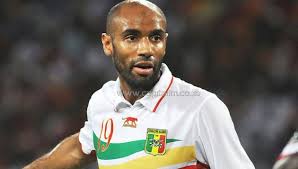By Samindra Kunti in Zurich
March 5 – Former Tottenham, West Ham United and Sevilla striker Frederick Kanouté has called for a level playing field in football by developing local African leagues.
Speaking at the FIFA Equality and Inclusion Conference in Zurich, Kanoute highlighted the plight of the African game. Kanouté has a diverse background, growing up in France, but with Malian heritage. He starred in the 2004 African Cup of Nations when he led Les Aigles to the last four.
“We have to make sure that in Africa we are treated as an equal partner,” said Kanouté. “Not the bread basket as it has been in history. An equal share of revenues has to be implemented.”
Kanouté wants to achieve that level playing field through the development of African domestic leagues, empowering local clubs with more resources and a better negotiation position when it comes to transfers. Higher compensation fees would also benefit the clubs.
“To be very precise, we have to help the local leagues to develop themselves, whether it is the men’s or the women’s league,” explained Kanouté. “Why would we have to wait cross the sea or take a plane to Europe to play and make a living out of it? Imagine bringing a bit more money to African leagues with TV broadcasts. The best of them can go to Europe, but [because] we have already a competitive league. Those, that can play in Europe, could still in the local league for a small salary.”
In recent years, the African club game has enjoyed some uplift at a continental level with the prominence of CAF’s Champions League through higher prize money, introduced last year by Africa’s governing body, and a controversial TV rights deal with French behemoth Lagardère, but at the domestic level leagues still limp far behind Europe. The Malian Première Division was disbanded last year over politicking in the Malian Football Federation, FMF. At the end of 2017, FIFA installed a normalisation committee in Mali.
“Malian football is still not recognised as professional,” said Kanouté. “Most players can’t live off football. If we can develop, European clubs would not be able to take advantage and cherry-pick them. The transfers would be higher. You would have negotiation and leverage. That is the only way, without taking about all the jobs that it creates. It is about redistributing the football economy. FIFA has done a great step forward. We still have a long way forward to equality.”
Contact the writer of this story at moc.l1745327250labto1745327250ofdlr1745327250owedi1745327250sni@i1745327250tnuk.1745327250ardni1745327250mas1745327250

